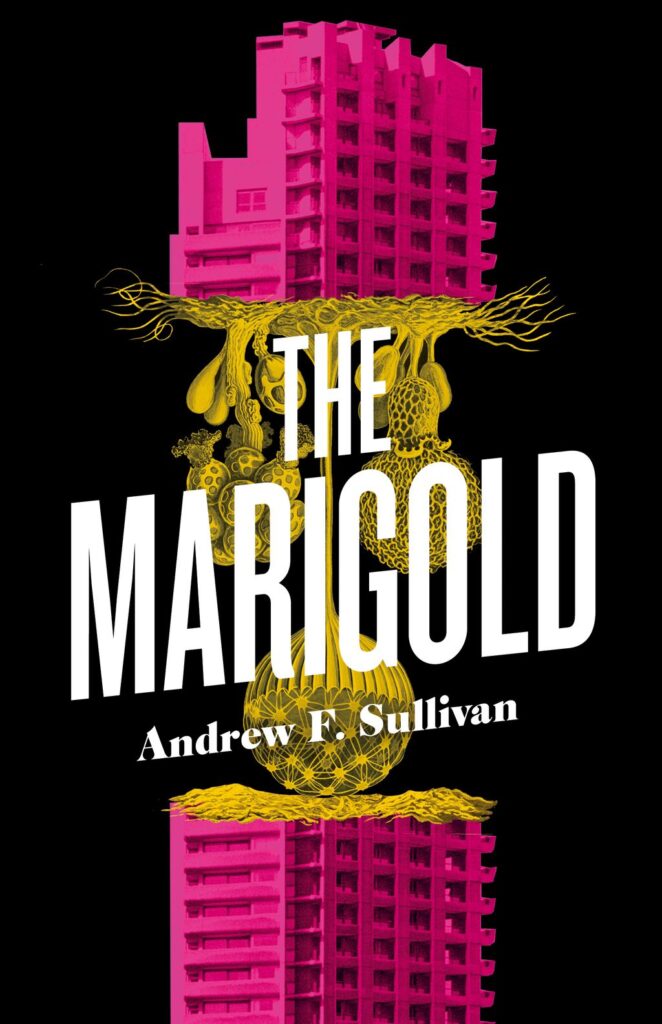
The Marigold
Andrew F. Sullivan, 352 pgs, ECW Press, ecwpress.com, $24.95
A cult of sacrifice-outsourcing real estate developers, public health investigators sporting bestial masks and a large cast of other Torontonians struggle to contain, monetize or simply survive a deadly fungal outbreak in this satiric horror novel. Set in an increasingly hollowed-out version of the city, with a sinkhole in place of Queen’s Park, driver-less streetcars drowning in sewage and an atrophied public sector at the mercy of a Sidewalk Labs stand-in, The Marigold is an engaging and unsettling saga of precarity and proliferating catastrophes.
Sullivan cites David Cronenberg and J.G. Ballard as major influences on the novel, and it shows in his eerie vision of the city. The titular condo tower features prominently, but the Toronto of The Marigold is most effectively unnerving when rendered from the vantage point of foundation pits, damp parking garages, fortress-like backyards and underground tunnels.
There’s a skillful balancing of the novel’s outlandish and grimly comic moments against its bleaker through-lines. Direct grotesqueness in The Marigold serves as an effective reprieve from its more grounded and familiar horrors. The novel often comes across as an expression of grief, and ineffectuality is ever-present: “Maybe he could see what was coming. It didn’t mean he could change it.” The fatalism and absence of easy platitudes allow for a more genuine engagement with social and ecological disaster.
Although characters in The Marigold can occasionally come across as stilted, they’re ultimately more than mere ciphers for conveying the corrosive effect of capitalism. Their complexity is most apparent in their grudging resilience and brief moments of slipshod resistance.
